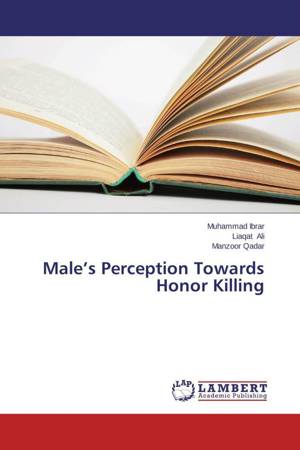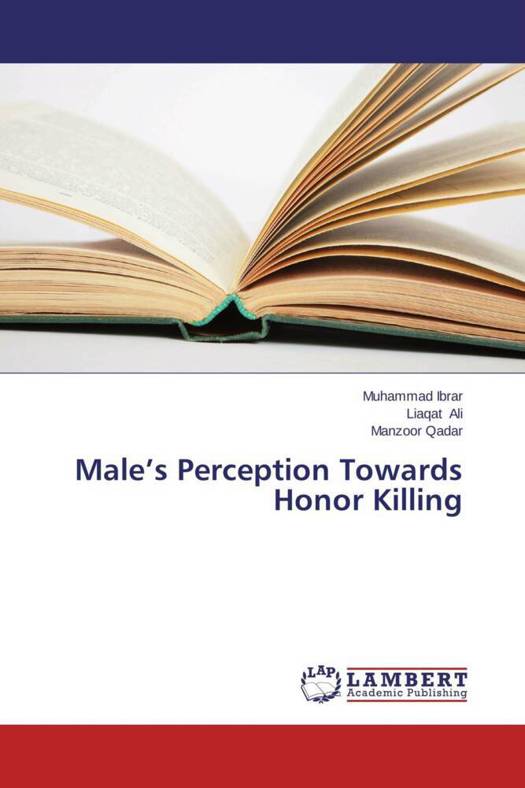
- Afhalen na 1 uur in een winkel met voorraad
- Gratis thuislevering in België vanaf € 30
- Ruim aanbod met 7 miljoen producten
- Afhalen na 1 uur in een winkel met voorraad
- Gratis thuislevering in België vanaf € 30
- Ruim aanbod met 7 miljoen producten
Zoeken
Male's Perception Towards Honor Killing
Muhammad Ibrar, Liaqat Ali, Manzoor Qadar
Paperback | Engels
€ 48,95
+ 97 punten
Omschrijving
Honor killing remained an intractable social problem with many prospects after it committed against often female in Pakistani society. The problem has attracted the concern of the researcher in the recent time due to its grave and for reaching impact on the society in general and the victimized individual and family particular. This problem will be increased if not properly dig out and presented its true and real picture the people who are concerned with the problem. In Pakistan this problem is mainly done by the male members for preserving their honor and maintains its dignity by killing wives, sisters, cousins and daughter etc. But many research scholars' religious injunctions term it as a crime on the ground that the offenders commit it without any clarification and take the life of innocent only for its fake honor. The problem in hand will clarity and know the perceptions of all gestures towards it and will help in minimizing the growing impact of it on the whole society. The main purpose of the study was to know about the perception of male members of community people towards Honor killing. What were their personal opinions about that tradition?
Specificaties
Betrokkenen
- Auteur(s):
- Uitgeverij:
Inhoud
- Aantal bladzijden:
- 68
- Taal:
- Engels
Eigenschappen
- Productcode (EAN):
- 9783659522062
- Verschijningsdatum:
- 5/02/2014
- Uitvoering:
- Paperback
- Afmetingen:
- 150 mm x 220 mm
- Gewicht:
- 113 g

Alleen bij Standaard Boekhandel
+ 97 punten op je klantenkaart van Standaard Boekhandel
Beoordelingen
We publiceren alleen reviews die voldoen aan de voorwaarden voor reviews. Bekijk onze voorwaarden voor reviews.








